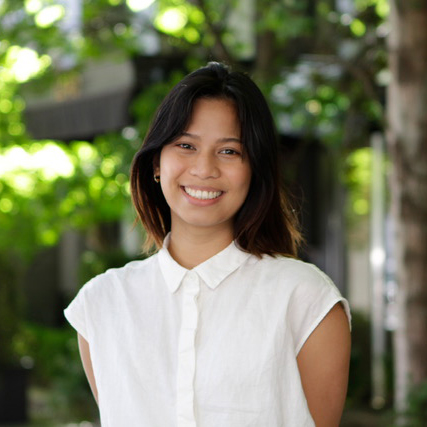Winners
Joyce Drohan Award Winners
Take a look at the journeys that our award winners have taken in their pursuit for knowledge and inspiration in sustainable architecture and urban design. The places that they have visited have contributed to their understanding of sustainable practices in other countries, cultures, and built environments. Their passion serves not only themselves, but as a inspiration for all architects and urban designers to continually pursue knowledge and innovation.

2024 Winner
Maria Angela Viaje
Maria Angela Viaje is a Master of Architecture student in the University of British Columbia approaching her final year of studies. Previously, she completed an Honours Bachelor of Arts in Architecture from the University of Toronto where she graduated with high distinction. In her studies, she developed a gamut of personal research interests which include community agency, diasporic identity, transnationalism, and Southeast Asian studies; all of which inspire and motivate her architectural endeavours.
Understanding Desakotas:
A Study on Land Use and Subverting Binary Urban-Non-urban Paradigms
Desakota is a term coined by UBC urban geographer Terry McGee to describe regions that are the outcome of rapid urban growth, creating “corridors joining large cities, strong rural-urban linkages, and a mixture of urban and rural activities.” More intriguingly, these spaces also demonstrate high mobility, a coexistence of different land uses, and higher female participation in labour. In investigating these spaces and their unique outcomes, this research proposal aims to deepen the understanding of non-Western urban frameworks, speculating upon ways North American models of urbanism could be improved upon.
Jury Comments
“The proposal to study the non-urban through a non-Western lens is fresh and exciting and has many implications for the future of the Canadian urban/non-urban landscape. I appreciate that the proposal was well-researched, imagines travel and research to interesting and relevant places, and promises ambitious products such as a short film and academic papers for conferences."
"I appreciate the applicant’s focus on liminal urban typologies that are resultant spaces, often occurring between highly planned and connected centres and a consequence of rapid urban growth. Looking to non-western examples for lessons that can inform Canadian cities is also laudable."
“Angela's travel will support a design exploration that has a great potential to enrich the academic and professional discourse about the sustainable and resilient design of urban interfaces and transitions between different land uses. “Her diverse travel destinations - Indonesia, Philippines and Japan - will broaden the findings applicable to Canadian cities, complementing Angela's search for an equity-informed and holistic approach to urban design, very much in alignment with the spirit and inspiration of The Joyce Drohan Travel Award.”

Chloe Boisvert
Chloe Boisvert graduated with honours from UBC’s Bachelor of Environmental Design program in 2018, where she was the recipient of the Design Excellence Award. During her undergraduate studies, she spent a semester abroad in Brisbane, Australia, and completed a study abroad trip to Stockholm, Sweden. These experiences led her to a role as a designer at Carscadden Stokes McDonald Architects in Vancouver, where she continued to develop her design skills and ethos by working on a variety of public and community buildings at various scales. Currently a second-year student in SALA’s Master of Architecture program, Chloe’s recent design work has explored adaptive reuse, material recycling, passive design strategies, and storytelling. Raised on a farm in the interior of BC, Chloe believes in the value of taking time to understand distinct identities of place through the design process and is interested in further exploring the interface of the urban and the rural through an interdisciplinary lens.
Exploring socio-ecological wildfire resilience strategies in the wildland-urban interface
Wildfire events are increasing in occurrence, intensity, and scale, spurred on by the effects of climate change. Economic and socio-ecological losses to human and animal lives, farmland, structures, equipment, and habitat are mounting both in areas that have historically experienced wildfire activity and in those that have not, with far-reaching impacts that threaten lives, livelihoods, air quality, and food security. As wildfire events shift from a regular natural disturbance to a serious risk case, the need for resilience in built form and social attitudes is evident. This project proposes a study of wildfire-impacted regions ‘on the edge’ in the wildland-urban interface where community-led and bottom-up social, ecological, urban design, and architectural wildfire resilience approaches have been employed, and will speculate on their relevance and possibilities as they relate to Western Canadian communities. Proposed regions of study include commonly owned agricultural and forestry communities in Galicia, Spain where territory is managed such that fire is activated and managed as a tool alongside livestock activity, as well as neighborhood centres in Queensland, Australia, where locally operated community spaces have been formalized as a medium for orchestrating community-led responses to bushfire events.
